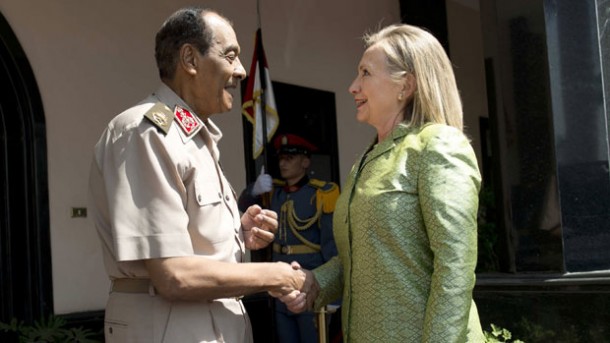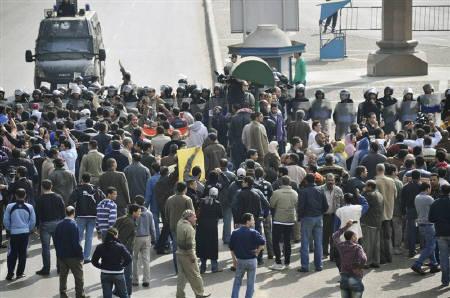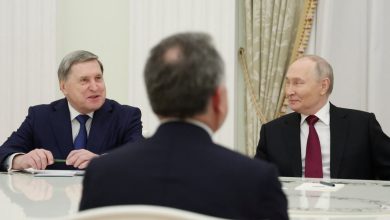US Secretary of State Hillary Clinton is holding talks with Egypt’s top military leaders, just hours after calling for them to help smooth the country’s full transition to democracy.
The top US diplomat arrived in Egypt amid a complex power struggle between the newly elected Islamist president, Mohamed Morsi, and the Supreme Council of the Armed Forces (SCAF).
A day after her first meeting with Morsi, Clinton was to hold talks on Sunday with Field Marshal Hussein Tantawi, the country’s interim military ruler after president Hosni Mubarak was ousted last year after three decades in power.
Clinton has repeatedly called on the military to respect the outcome of the elections and told a news conference her talks with Tantawi would focus on “working to support the military’s return to a purely national security role”.
Mohamed Morsi, Egypt’s first democratically elected president, is locked in a stand-off with the military after he ordered parliament to reconvene, defying an army decision to disband the house.
But a SCAF declaration, which acts as a temporary constitution, issued before Morsi was sworn in granted the military sweeping powers, including legislative control, even though they handed over to Morsi on June 30.
While Morsi’s decree was applauded by supporters, it set off a firestorm of criticism from opponents who accused him of overstepping his authority.
Choosing her words carefully in the politically charged atmosphere, Clinton said: “It is very clear that Egyptians are in the midst of complex negotiations about the transition, including the make-up of parliament, a new constitution and the full powers of the president.
“Democracy is hard. It requires dialogue and compromise and real politics.
“We are encouraged and we want to be helpful. But we know that it is not for the United States to decide, it is for the Egyptian people to decide.”
Hillary Clinton’s meeting on Saturday with Morsi, a longtime member of the Muslim Brotherhood, comes after Egypt’s first free presidential elections following the ousting of decades-old US ally Mubarak, who enjoyed strong military backing.
The US supported the full transition to civilian rule, Clinton said, adding however that she wanted to commend the military council “for representing the Egyptian people in the revolution” and overseeing free elections.
Hundreds of protesters had gathered outside the US embassy and later Clinton’s hotel to denounce “US interference in domestic affairs”, the official MENA news agency reported.
At the chaotic news conference one Egyptian reporter repeatedly tried to ask Clinton why the US had resumed its $1.3 billion annual military aid.
A senior State Department official said Clinton would “encourage Tantawi … to engage in dialogue and to avoid the kind of confrontation that could potentially lead to the transition veering off track”.
With the economy in a shambles, Clinton also on Saturday unveiled plans for $250 million in loan guarantees to Egyptian small and medium-sized businesses, as well as setting up a US-Egypt enterprise fund with some $60 million in capital.



